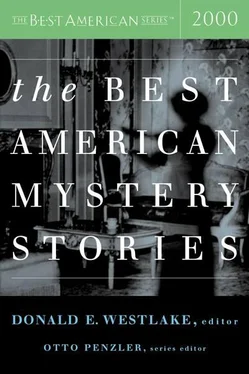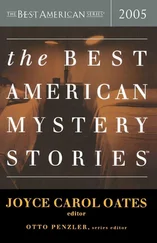All of my models for Lloyd, unfortunately, are dead. The story is a tribute to their courage, and the courage of the people who defended them. Many thanks also to James Carroll and Pamela Painter.
Martha Moffettwas born at the end of a dirt road in St. Clair County, Alabama, was a student of Hudson Strode’s at the University of Alabama, then worked in publishing in New York City ( GQ the American Heritage Dictionary, Ladies’ Home Journal). She wrote her first novel on the subway on the way to work and raised three daughters. She currently lives in Florida, where she recently won a state fellowship and grant for a play. She remembers with gratitude a fellowship at Yaddo, where her lunch was left on the front porch so that she could work all day.
• I’ve always liked to read scary, suspenseful stories, but this is the first story I’ve written that scared me. I think it works because the reader knows what a bad type Nick is, and feels anxiety for Storey, who doesn’t have a clue.
Several readers have commented on the difficulty of writing from a male viewpoint, but there was no difficulty. I’ve never seen why there should be. Don’t we all think about each other, study each other, pretend to be each other, remember all the words spoken in bed? Writing from a male viewpoint is an interesting undertaking.
Patently squeamish when it comes to reading about himself in the third person because of its obituary-like overtones, Josh Pryorlives outside Los Angeles, where he is a part-time professor of composition at El Camino College. He has published several pieces of short fiction in both national and regional magazines and is currently at work on a collection of stories and his second novel, The IT Conspiracy. He can be reached at joshuapryor@yahoo. com.
I’ve never really thought of myself as a “mystery writer” per se. My fiction, however, seems to have a mind of its own, often wedding characters to circumstance in suspenseful, typically macabre twists of fate. Usually I’ll start out with the best of intentions, but when I sit down to write, something comes over me, and had things have a way of happening to those unfortunate souls spawned from my imagination.
“Wrong Numbers” was inspired by a friend who actually worked in human resources at Pac Bell. My initial intent was to write a story about a new hire gone wrong. At the time, not even I realized that Karloff was a budding psychopath and how terribly wrongly events would unfold.
Shel Silversteinwas born in Chicago in 1930 and is best known for such children’s books as The Giving Tree , which sold more than five million copies, and A Light in the Attic, which remained on the New York Times bestseller list for 182 weeks. One of the most versatile and successful artists of our time, he regularly published cartoons and illustrations in Playboy, and he wrote the words and music for many popular entertainers, including Lynn Anderson, Jerry Lee Lewis, Dr. Hook, the Brothers Four, and Johnny Cash, including Cash’s famous “A Boy Named Sue.” The kind and gentle man who brought so much delight to so many millions of children of all ages died on May 10, 1999.
Peter Moore Smithwas born in Panama and has lived in Nebraska, Alaska, North Carolina, New York, New Jersey, Virginia, and West Germany. Currently his home is Manhattan, where he lives with his wife, Brigette, a graphic designer. His short fiction has appeared in a number of literary publications, and his story “Oblivion, Nebraska” was selected for the Pushcart Prize 2000 volume. His first novel, Raveling, is forthcoming.
• There is something about the image of a little girl splashing around in one of those backyard swimming pools and the play of light across the surface of the water that is to me central to my American childhood. I can practically taste the chlorine. There is also something about the idea of losing a sister that I find deeply disturbing. I have two. Losing either one of them would be the worst thing in the world and, to my twisted writer’s imagination, well worth writing about.
Brad Watson’s collection of stories, Last Days of the Dog-Men, won the Sue Kaufman Prize for First Fiction from the American Academy of Arts and Letters and the Great Lakes Colleges Association New Writers Award. He was born in Mississippi, was educated there and in Alabama, worked as a newspaper reporter among other things, and taught at the University of Alabama. He currently is Briggs-Copeland Lecturer in Fiction and director of the creative writing program at Harvard University.
• “Water Dog God” began as a major revision of another story, then became its own thing. I first thought of it, though, as a failed revision of the other story, “A Blessing,” and put it away in a drawer. Only after Dog-Men had come out did I rediscover it and realize it had possibilities. I revised it every six months or so for the next couple of years, and revised it more than once for Marc Smirnoff at the Oxford American. It went from very weird to nicely strange. Or at least that’s my view. In “A Blessing,” a couple expecting a child drive out to get a new dog from the owner of this place on the lake. The couple became, after a fashion, the girl Maeve, and the dog owner became a very different person from the one he was in “A Blessing.” The original story was in the third person, from the point of view of the pregnant woman. As far as I can tell, the only things the two stories still share are the setting and the sense of nascent — later delivered — violence about this place. The sorts of things the pregnant woman fears in “A Blessing” are realized in “Water Dog God.” Sort of.












